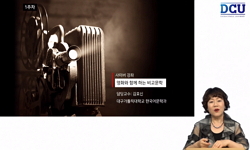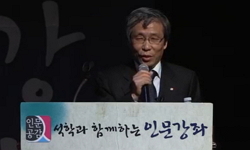The present study examined the effect of two variables of task complexity, reasoning demand and time pressure, each from the resource-directing and resource-dispersing dimension in Robinson`s (2001) framework of task classification. Reasoning demand w...
http://chineseinput.net/에서 pinyin(병음)방식으로 중국어를 변환할 수 있습니다.
변환된 중국어를 복사하여 사용하시면 됩니다.
- 中文 을 입력하시려면 zhongwen을 입력하시고 space를누르시면됩니다.
- 北京 을 입력하시려면 beijing을 입력하시고 space를 누르시면 됩니다.


The Effects of Task Complexity for Text Summarization by Korean Adult EFL Learners = The Effects of Task Complexity for Text Summarization by Korean Adult EFL Learners
한글로보기https://www.riss.kr/link?id=A87002410
- 저자
- 발행기관
- 학술지명
- 권호사항
-
발행연도
2011
-
작성언어
-
- 주제어
-
KDC
800
-
등재정보
KCI우수등재,SCOPUS
-
자료형태
학술저널
- 발행기관 URL
-
수록면
911-938(28쪽)
- 제공처
- 소장기관
-
0
상세조회 -
0
다운로드
부가정보
다국어 초록 (Multilingual Abstract)
The present study examined the effect of two variables of task complexity, reasoning demand and time pressure, each from the resource-directing and resource-dispersing dimension in Robinson`s (2001) framework of task classification. Reasoning demand was operationalized as the two types of texts to read and summarize, expository and argumentative. Time pressure was operationalized as the two modes of performance, oral and written. Six university students summarized the two types of text orally and twenty four students from the same school summarized them in the written form. Results from t test and ANCOVA showed that in the oral mode, reasoning demand tends to heighten the complexity of the language used in the summary in competition with accuracy but such an effect disappeared in the written mode. It was interpreted that the degree of time pressure is not the only difference between the oral and written modes but that the two modes may be fundamentally different cognitive tasks, and that Robinson`s (2001) and Skehan`s (1998) models were differentially supported by the oral mode of tasks but not by the written mode of the tasks.
동일학술지(권/호) 다른 논문
-
Electromagnetic Field and the Poetry of Ezra Pound
- 한국영어영문학회
- ( Taek Ryoo Gi )
- 2011
- KCI우수등재,SCOPUS
-
English No Matter Construction: A Construction-based Perspective
- 한국영어영문학회
- ( Jong Bok Kim )
- 2011
- KCI우수등재,SCOPUS
-
Feedback on Peer Feedback in EFL Composing: Four Stories
- 한국영어영문학회
- ( Myung Hye Huh )
- 2011
- KCI우수등재,SCOPUS
-
Henry James`s The Turn of the Screw: The Subject and the Ontological Status of the Real Gaze
- 한국영어영문학회
- ( Kyung Soon Kim )
- 2011
- KCI우수등재,SCOPUS




 KISS
KISS







